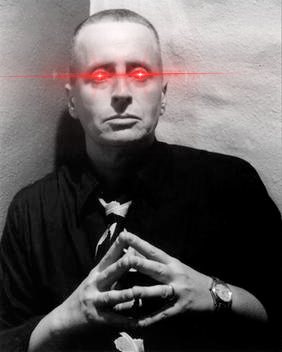1st paragraph is my own gender troubles reflected in the book. 2cd is broader literary discussion for those interested!
Basically, I got hooked and read the novels in two days...but I'm not quite sure how I feel about it. I have been on-and-off HRT for about two years, and really identified with Ames/Amy's struggle with living trans. In particular, his experience with disassociation and retreating into masculinity as a distancing mechanism really resonated with me. I gained a lot of insight into my own life and feelings through reading. At the same time, I couldn't see myself doing gender like anyone in the book. I don't know what part of that is my internalized transphobia and fear of being more obviously trans in a hostile world, and what part of that is my not fully fitting into the binary trans role.
Another big piece of sand stuck in my craw with the novel is that I perceived a lot of it as a novelized 'trans 101' and fictionalized ethnography of the main themes in trans life for the non-trans audience. Of course, given how small the trans community is it makes sense that writing for the masses means writing for cissies but there were a few moments that really struck me. In particular, the spelling out of the function of Truvada and Spiro as particular moments. Contrast this with the movie 'By Hook or by Crook' which is a pretty straightforward slice-of-life movie where the three main characters are trans, does not explain trans-ness to the audience, and is still comprehensible to a general audience. Writing this, I realize I'm being a bit of a crank (why can't I have a mass-market by-trans-for-trans novel boo hoo) and that having a nuanced explainer and introduction to (white, college-educated) trans culture is also really valuable.
I'm also interested in hearing from people who did not like the book, and from cis audiences too! Also apologies for rambling I'm not a very good writer. I have a lot ideas that make sense in my head that I can't seem to translate to written words very clearly or concisely. :)

This is a legit and interesting question and you shouldn't feel selfish for asking about this. I find hispanic or latinx writings very meh a lot of the time and I don't think I'd ever fully seen my identity represented in a way that wasn't also appealing to the mass-market cutesie stereotype of "spanglish" speaking latinos, of the american masses.
I think a big part of it comes down to like density and the 'room of one's own problem'. For small and often marginalised communities like trans people and latinx people, how many good writers are there? Then, out of that pool how many have the stability and financial security to really devote themselves to writing? Then, out of THAT pool how many are going to focus explicitly on exploring their identity with their community as the intended audience? Probably not very many. And those good writers who might be interested in the project probably aren't going to reach financial stability writing/making art just for their own smaller and more marginalized community.
I'll add an actual reply to the thread that isn't just self-promo once I check out a few chapters of Detransition, Baby, but Urasaria Academy (free on Webnovel!) fits the first two, possibly the 3rd, and it has 450 followers/is likely unpublishable for numerous reasons related to the 3rd, so there's that.
I believe we differ slightly on the importance of identity, but it's almost a microcosm of the general writing advice I want to give to people: how can I tell them not to write cliches or tell them that characters should be fully-formed beyond their identity when both are what sells, is popular? Both mass-market fiction (whose cliched stereotypes are really just a symptom of their overall poor writing) and much trans-written fiction falls in to this, for me; I relate far more to the Texan post-war rancher Charlie Flagg in The Time It Never Rained, for his unwillingness to accept help that brings ruin to those around him, than I have any trans character beside my own.
Literature's general decline, to me, would also seem that it would push out marginalized writers further via that it's the artform that requires the leat money to write/enjoy.